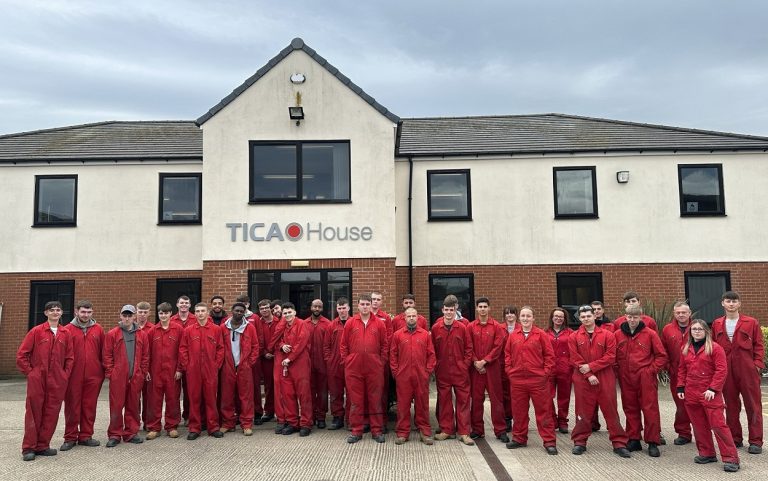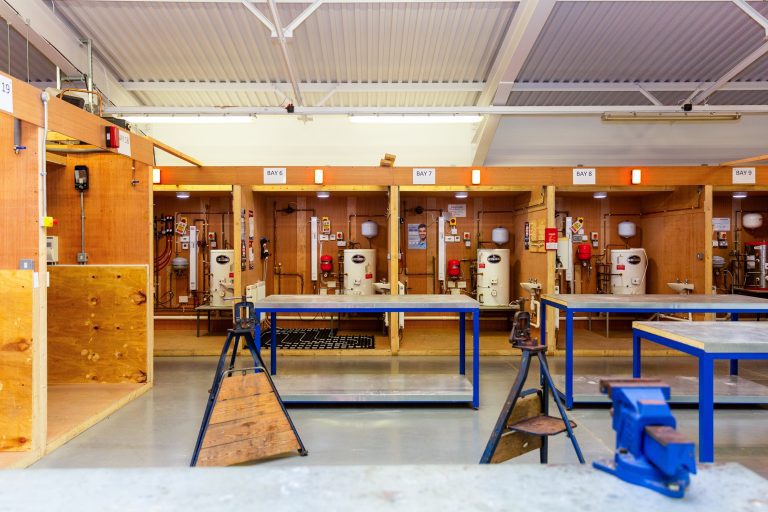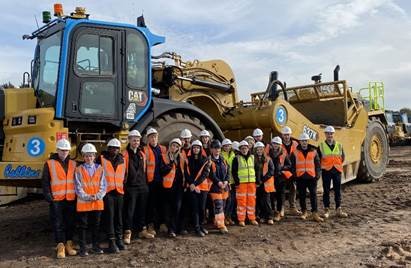The North London Heat and Power Project (NLHPP), a £1.5 billion nationally significant infrastructure project under construction in Edmonton commissioned by North London Waste Authority (NLWA), has been named the Most Innovative Project of the Year at the Institute of Economic Development (IED) Annual Awards 2023. The awards, which were hosted in Birmingham last week following the IED Annual Conference ‘Grow for Good? Reappraising the UK’s Growth Objectives’, recognise achievers in the public and private sector through a series of individual, team and organisational categories. The Most Innovative Project of the Year award is for innovative economic development projects which have pushed the boundaries beyond traditional approaches and delivered additional beneficial outcomes as a result of the innovation. The nomination for the Schools Engagement Programme, which is managed by NLWA contractor AECOM’s Economic Development team, detailed awareness-raising of the NLHPP and its offering with local schools throughout north London. With the aim to stimulate interest in Science, Technology, Engineering and Maths (STEM) subjects, as well as construction, engineering and waste infrastructure related careers, sessions involve staff from across the project volunteering to run workshops and interactive forums for local students. The programme covers four main topics related to recycling, energy from waste, construction and career pathways, which are adapted to the needs of the students. Student site tours of the NLHPP and an onsite activity session are also offered. Since March 2021, the project team has run over 70 sessions at more than 50 local schools, engaging over 2,300 students. Over the course of the last year, the programme has expanded to primary schools and to those outside of mainstream education, including Special Educational Needs (SEN) schools and Pupil Referral Units (PRU), with further expansion of the primary, SEN and youth group offering planned. NLHPP contractor ACCIONA has also developed a specific programme to encourage female students to consider a career in the industry, ‘She can Construct’, which showcases examples of women in a range of roles on the NLHPP and therefore the diversity of career paths. Commenting on the significance of the IED award, NLWA Chair Cllr Clyde Loakes said: “From the outset of NLHPP, one of our main priorities has been to ensure that the project creates new opportunities for young people. The fact that students who have attended our school sessions say they are more likely to pursue STEM subjects and careers after hearing from professionals working on NLHPP, is testament to the value of incorporating extensive social value into the framework of infrastructure projects. Thank you to the Institute of Economic Development for recognising our work with this prestigious award.” After the ceremony, AECOM’s Senior Economic Development Consultant Beth Parsons said: “We are honoured to win the Most Innovative Project of the Year award for our work on the NLHPP Schools Engagement Programme. This is a key part of our social value workstream which we are delivering on behalf of NLWA. The programme is inspiring students to consider STEM and construction careers, with involvement from over 140 professionals across the project at multiple organisations. I am very proud of our team for their efforts in continuing to deliver such a successful initiative.” Separately, Beth was shortlisted in the IED’s Social Value Champion of the Year award category, which recognises individuals who have championed and made a significant contribution to social value creation, developing best practice in their field and making positive impacts in their communities. IED Director Bev Hurley CBE, who hosted the IED’s 40th anniversary awards evening sponsored by Key Cities, said: “Many congratulations to NLHPP as the winner of our Most Innovative Project of the Year award. Our judges determined that the scale of activity in this project was high. It was described as future facing, collaborative in nature, with strong supporting feedback from young people involved.” IED Executive Director Nigel Wilcock added: “The awards dinner was a wonderful evening, following on from a highly successful conference in the day, and both were a fitting celebration of our 40th anniversary as a professional body. Congratulations to all our winners, those who our judging panel determined should be Highly Commended for their nomination, and indeed everyone who was shortlisted and took the opportunity to enter the awards. Thanks to Key Cities for sponsoring the awards evening, and our individual award sponsors for their support.” The IED is the UK’s leading independent professional body for economic development and regeneration practitioners, supporting them to create stronger communities and sustainable economies. Building, Design & Construction Magazine | The Choice of Industry Professionals














